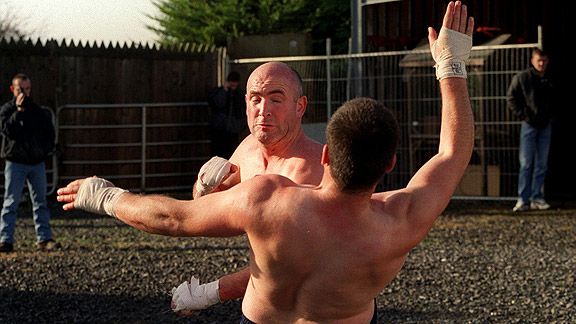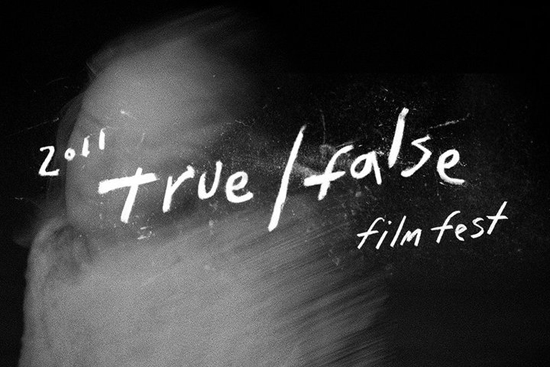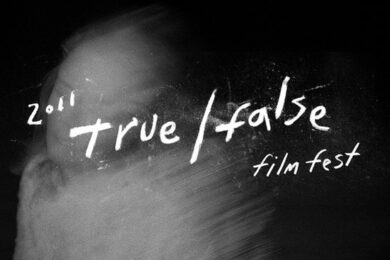Photo & Design: Andrew Droz Palermo
Film festivals can be quite impersonal, joyless affairs – designed for critics and distributors sizing up the latest movies and starlets like so much meat. At their worst, they’re about as relevant to the average film goer as a dog show is to pet-lovers.
This is why True / False is such a pleasure – a festival where films are appreciated and discovered rather than digested and spat out. By focusing solely on documentary films, they’ve side-stepped all the celebrity pomp which accompanies the fiction film market and with it, the all the normal barriers that make the average festival-goer feel like a second class citizen. True / False‘s growing reputation also allows them to get some of the biggest non-fiction directors in the World to descend on a small college town in Missouri – because they get to show their film to a room full of honest folk who aren’t calculating future box office returns as they watch.
Columbia is a charming place, full of endless coffee shops, vintage clothes and book stores, and, aside from one Subway, narry a franchise in sight. There’s a suitably dank punk club with a VHS library, a breakfast cafe / nightclub in a former petrol station and a place affectionately called ‘Trops’ which only serves tropical flavoured alcoholic slushies. But the organisers manage to amp up the charm even further, populating the city’s streets with handmade decorations, parades and volunteers dressed like lunatics. Plus you’re constantly tripping over folk bands serenading ticket-holders outside the venue or on stage before the film starts. Now the Quietus does not abide folk music, but in retrospect folk (rather than say, industrial noise) is probably the best choice for placating agitated punters in queues. We did however appreciate Ian Svenonious’s rocking DJ sets; Bunny and Dade’s cocksure Casio pop and the virtuoso Toughcat’s stomping acoustic version of ‘Betty Davis Eyes’.
After a surreal opening night masked ball, everyone piled in the majestic Missouri Theatre for Benda Bilili. ‘Inspirational true stories’ can often be patronising both to the film’s subjects who lift themselves out of adversity and to the audiences who are made to feel sorry for them. Luckily this story of handicapped Congolese street musicians cutting a hit record does not fall prey to easy story-telling conventions – and more importantly, their music is actually good.
The band is full of genuinely charismatic characters with a mischievous senses of the grift – it’s clear that they were using the filmmakers as much as the filmmakers may have been exploiting them. Aside from the music, the film is full of disarming moments which address the reality of poverty, but which are treated with humour and grace rather than despair.
As the name of the festival implies, the True / False organisers encourage their audiences to probe the language by which documentary construct truth; what is said and what is left unsaid. To keep the audience on their toes, they also include blatant lies told in a documentary way. Troll Hunter is a mix between The Blair Witch Project and Cloverfiled, but plays the found-footage-format for laughs – as a team Norwegian film students team up with a grizzled government agent fighting trolls with ridiculous arcane techniques. The trolls in question, while painstakingly detailed and convincingly rendered, look like they were designed by Maurice Sendak or even Jim Henson. It’s often exciting to watch, but the laughs come from the deadly seriousness maintained by the actors at all stages of this farce.
Shut Up Little Man: An Audio Misadventure tells the definitive true story of two young punk rockers who recorded the drunken arguments of their San Francisco neighbours – audio clips which became a viral hit on cassette and cd well before the internet age of memes. The film explores the strange subculture surrounding ‘found audio’, and chronicles the various failed attempts to turn the tapes into a motion picture and other profitable endeavours (something it spends perhaps too much time on). Shut Up Little Man is on much firmer ground when it attempts, rightly, to flesh out the real people behind the tapes and the morality of exploiting them.
Although a surprising number of directors were present for each of their screenings some, like Australian Matthew Bate appeared by Skype, annoying ring tone and all, which was a great solution when it worked. [As an aside, imagine you’re one of those serial masturbators playing Chat Roulette but instead of viewing giggling girls, you find yourself confronted with a theatre of thousands staring at you, asking you if you think you’ve exploited your subject matter. Are you more or less turned on?]
The Redemption of General Butt Naked is a complex, thought provoking portrait of a Liberian warlord, Joshua, turned evangelical preacher who travels the country asking forgiveness from those he hurt. Everything about the Liberian War seems almost mythological in its extremes: as a shaman leader, Joshua led his tribe naked into battle, which he claimed made him impervious to bullets; he also claims to have killed "not-less than 20,000 people". Joshua is an untrustworthy narrator par excellence and yet he’s our only way in.
It is clear that while the filmmakers are enthralled by their subject, they do not always trust his tall tales or the sincerity of his redemptive campaign. But perhaps it doesn’t matter because the act of forgiveness itself allows these people to move on and let go of a past in which they were passive victims. It is, of course, precisely not forgiving which perpetuates tribal violence and allows it to pass on through generations.

KNUCKLE also deals with the themes of violence and forgiveness – this time in the Irish ‘traveller’ community. The film follows three families (actually three strands of the same family, intermingled by marriage) who settle long standing grievances through bare-knuckle boxing. Ironically it’s this brutal spectacle which takes the place of more damaging and uncontrolled gang violence. It’s unclear other than tradition and ritual what perpetuates the antagonism at all – each family pretends they are only reluctantly defending themselves and yet each "fair fight" causes another one (mostly because of the taunting videos the non-fighting lackies send to each other). There are plenty of humorous moments in this otherwise grim doc, such as the hysterical promo video of Joe ‘King of the Travellers’ Joyce whose face with its sunken eyes looks like a stress doll, rubberized over years of pummelling. In each fight, you see the older clan pacing around on cell phones like dads in the maternity ward. The fights have their voyeuristic allure, but as the director admits at one point, when you find yourself watching two grandfathers beat the shit out of each other in the woods, maybe its time to stop.
Project Nim is another solid film by James Marsh, (Man on Wire) which follows the saga of the first monkey to be taught sign language, who was later abandoned in an animal testing lab when the experiment finished. As Marsh explained later in a Q&A, he was most concerned with the bizarre behaviour of the humans involved: the woman chosen to raise the chimp from infancy was the former lover of the linguist in charge, who subsequently slept with the 19-year-old student he selected to lead the teaching, while two other scientists working on the project also had an affair. Yet the participants contend that these dalliances didn’t impact the findings. All the key players have a narcissistic belief that their contribution to the project were the most crucial. The irony is that with all these linguists and psychiatrists talking at cross purposes, no zoologist was involved until after the experiment was over. Maybe he could have told them that chimps don’t need to be potty trained and wear turtlenecks to gain language skills.
What struck me about this closing night film, aside from the fact that director, producer and two key people featured in the documentary were in attendance was that this was the only Q&A which descended into strange rambling questions. Overall, True / False audiences asked succinct, probing questions which suggests a town fed a steady diet of excellent non-fiction: curious, eager to learn but sceptical and questioning.
In it’s 8th year, True / False has clearly grown on Columbia. It’s efficiently run: queues move quickly and few are left dissapointed, and yet it’s not mired in the rigid bureaucracy of larger festivals. (The only complaint being that sometimes it was so streamlined that fascinating Q&As had to be cut short to make way for the next show.) Luckily the organisers have only modest plans to expand, which hopefully means that this wonderful festival won’t loose its personal touch.






